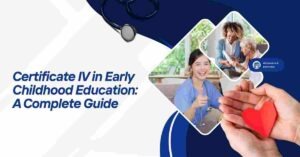Introduction
The ability to speak and understand English is essential in the UK, both for personal development and career advancement. Whether you are an immigrant, job seeker, or adult returning to education, improving your English can open many doors. Thankfully, the UK government offers a variety of free English courses through different organisations and educational programmes. These courses are designed to help individuals improve their reading, writing, speaking, and listening skills — and most importantly, they are completely free.
This article provides an in-depth guide on free English courses gov UK, focusing on eligibility, benefits, how to apply, and what to expect from the classes. If you’re searching for ways to enhance your language skills without the financial burden, this guide will walk you through everything you need to know.
What Are Government-Funded English Courses?
Government-funded English courses, commonly known as ESOL (English for Speakers of Other Languages), are part of national education initiatives to improve language literacy for residents and citizens of the UK. These courses are usually offered by local councils, further education colleges, adult learning centres, and charities.
The courses focus on:
Practical English for daily life (shopping, transport, healthcare)
English for work or job interviews
Reading and writing skills
Grammar and pronunciation
Listening and speaking exercises
Some courses may also include preparation for English qualifications or certifications that can support further education or job opportunities.
Who Can Access Free English Courses in the UK?
The eligibility for free English courses depends on several factors such as:
Your immigration status
Your income level
Whether you are on benefits or low-income
Your education history
Typically, these courses are available to:
UK citizens with low or no qualifications
Refugees and asylum seekers
EU or EEA nationals settled in the UK
Migrants with the right to live and work in the UK
Adults over the age of 19 on certain benefits like Universal Credit, Jobseeker’s Allowance, or Employment Support Allowance
If you’re unsure about your eligibility, local adult education centres usually provide guidance and free assessments before enrolment.
Types of Free English Courses Offered
1. ESOL (English for Speakers of Other Languages)
These are the most common free English courses offered. They are designed for non-native speakers and are available from beginner to advanced levels. Topics covered include grammar, speaking, listening, reading, and writing.
2. Functional Skills English
Functional Skills courses focus on practical uses of English and are ideal for people who want to improve their communication for everyday tasks or work-related activities. These courses can lead to a Level 1 or Level 2 qualification.
3. Literacy Courses
For native English speakers who struggle with reading and writing, literacy courses offer foundational skills to improve comprehension and communication.
4. Workplace English Courses
Some government programmes collaborate with employers to offer free English training at the workplace. This is ideal for employees who need better communication skills to perform their jobs efficiently.
Benefits of Free English Courses in the UK
Taking a free English course can benefit you in multiple ways:
1. Improved Communication
Better English skills will help you communicate confidently in daily life, from doctor appointments to job applications.
2. Increased Employability
Employers look for candidates with strong English skills. Completing a recognised English course enhances your CV and gives you a competitive edge.
3. Access to Further Education
Many colleges and universities require a certain level of English proficiency. Free courses can prepare you for future academic qualifications.
4. Integration into the Community
Learning English can help you participate in social, cultural, and political life in the UK. It boosts confidence and helps form social connections.
5. Path to Citizenship
If you’re aiming for permanent residency or British citizenship, English language proficiency is often a requirement. Many of these free courses help you prepare for language exams like B1 or Life in the UK test.
How to Enrol in a Free English Course
Step 1: Locate a Provider
Start by checking with your local council, Jobcentre Plus, or adult education centre. Many colleges also list government-funded ESOL courses on their websites.
Step 2: Take a Placement Assessment
Most centres will invite you for a short language assessment to determine your current level and place you in the appropriate class.
Step 3: Confirm Your Eligibility
Bring necessary documents such as ID, proof of address, benefit receipts, or immigration paperwork.
Step 4: Begin Your Course
Once enrolled, you’ll receive a schedule, study materials, and possibly online access if the course is hybrid or virtual.
Popular Institutions Offering Free English Courses
Even though we’re not using source links, here are names of well-known institutions that often run these free courses:
Local Authorities’ Adult Learning Services
Community Colleges and Further Education Colleges
Local Libraries and Community Centres
Voluntary and Charity Organisations (e.g., Refugee Council, British Red Cross)
Online Free English Courses in the UK
Many learners prefer the flexibility of online learning. Fortunately, some government-funded courses offer online or blended formats. These online classes may include:
Video lessons
Virtual classrooms via Zoom or Teams
Assignments and reading tasks
Peer discussion forums
You’ll need a basic internet connection and sometimes a device like a tablet, computer, or smartphone. Some learning centres even offer access to digital devices during study hours.
Common Levels in English Courses
Free English courses are divided into standard levels such as:
Pre-entry (Basic introduction)
Entry Level 1
Entry Level 2
Entry Level 3
Level 1 (Equivalent to GCSE D-G)
Level 2 (Equivalent to GCSE A*-C)
Most learners progress through the levels depending on their proficiency and the course duration.
Certificate and Qualification Options
Many government-funded English courses in the UK include a final assessment or exam. Upon completion, you may receive a certificate that proves your English ability. This certificate can be useful for:
College or university applications
Job applications
Applying for citizenship or residency
Courses that lead to qualifications include Functional Skills English Level 1 or 2, and ESOL Skills for Life qualifications.
Free English Courses for Refugees and Asylum Seekers
If you are a refugee, asylum seeker, or recently resettled, you may have access to:
Fast-track English classes
Additional support services like interpreters
Classes focused on UK laws and culture
Citizenship preparation sessions
These are often provided by local councils or voluntary groups.
Additional Learning Support
For those who need extra help:
Learning support assistants may be available in classes
Some centres offer one-on-one tutoring
Flexible learning options for those with jobs or childcare responsibilities
Courses often include pastoral support, counselling, or career advice
Final Thoughts
If you’re living in the UK and want to improve your English, free English courses funded by the government are a valuable opportunity. They are designed not just to help you communicate, but to prepare you for a better future — academically, professionally, and socially.
Whether you’re just starting or looking to refine your English for work or citizenship, these government initiatives make learning accessible, inclusive, and practical. Don’t let language be a barrier. Take the step today and explore your nearest adult education centre or local learning provider.
Read more: Online Courses UK: The Ultimate 2025 Guide







